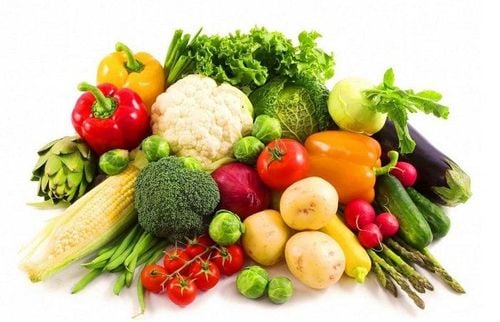This is an automatically translated article.
Pregnant women not only need to pay attention to nutritious foods, but also should know what foods to limit during pregnancy. In particular, rhubarb is often advised to avoid because it can cause miscarriage. So is this view really correct?1. Overview of katuk plant
Spinach, also known as Gotu kola, is a popular vegetable grown in Asian countries with tropical climates, including Vietnam. Spinach is often chosen in the meals of many families and can be an ingredient in many different dishes. Spinach is a plant rich in protein, so it can be eaten as a substitute for animal protein, which helps to limit calcium metabolism disorders that cause osteoporosis and kidney stones. Eating spinach also helps to supplement the body with a lot of vitamin K - which helps prevent the risk of bone fractures and spinach is also full of papaverin, which helps reduce visceral pain and lower blood pressure, so it is very good for the elderly. In addition, the leaves are also a rich source of vitamins such as vitamin C and B vitamins such as B1, B6. The minerals beneficial to the body including calcium, phosphorus, magnesium also account for a high content in the nutritional value of the plant. Besides, according to folk experience, water spinach is very good for women after giving birth, helping to push out all the secretions, filtering the blood and detoxifying effectively.

Mang thai có nên ăn rau ngót?
2. Is it safe to eat spinach during pregnancy?
Although water spinach is a favorite food of many people, this plant is also considered a dangerous food for pregnant women, because it can cause miscarriage, bleeding, and miscarriage. Even in some countries, doctors recommend not to eat the first 3 months to avoid complications on pregnancy.
However, this fact has not been verified accurately from a scientific point of view. Currently, there are no studies done to prove the harmful effects of rhubarb in pregnancy, including the first 3 months of consumption and the 3rd trimester of pregnancy.
Pregnant women can still add water spinach to their daily diet in moderate amounts. 30 grams of water spinach per day is a safe amount. Eating spinach in the first 3 months of pregnancy is still advised to limit because it can make pregnant women feel full and indigestion.
When there is still not enough scientific evidence to support or disprove, pregnant women should be careful before choosing rhubarb as a food. Pregnant women with a history of preterm birth, miscarriage or end-of-life, pregnant through assisted reproductive techniques should avoid eating spinach in the first 3 months to have a safe pregnancy. In addition, water spinach should be carefully processed such as cooking soup, stir-frying or boiling, so eating raw spinach should be limited. Choosing to buy fresh, clean, and not using pesticides is also something to keep in mind.

Ăn rau ngót trong thời gian mang thai ảnh hưởng gì tới sức khỏe không?
3. Harm of water spinach on pregnancy
Obviously, there is currently not enough evidence to support the adverse effects of Ginkgo biloba on pregnancy. However, eating too much water spinach during pregnancy can lead to the following undesirable effects:
Stomach bloating, indigestion: Spinach is a food containing high fiber content. Pregnant women have many physiological and anatomical changes in the body, eating too much spinach can lead to bloating and indigestion. Insomnia: supplementing with water spinach in large quantities and regularly in meals makes pregnant women easy to lose sleep, adversely affecting the health and quality of pregnancy. Reduced absorption of calcium and phosphorus: Although spinach is rich in calcium and phosphorus, the glucocorticoid produced when the body absorbs substances from spinach is a shield that interferes with the absorption of calcium and phosphorus mineral salts. from other foods. If you maintain to eat spinach for a long time, the pregnant woman's body may be deficient in these two mineral salts. Risk of miscarriage: papaverin contained in water spinach has stimulant, analgesic, muscle relaxant and hypotensive effects. This is also the same substance contained in the opium poppy. Experience has shown that this substance increases the risk of miscarriage when eating spinach in the first 3 months and increases the risk of premature birth when eating spinach in the last 3 months. In terms of nutritional value, sweet potato brings a lot of health benefits. However, in order to ensure a healthy pregnancy, during pregnancy, women should limit their consumption of spinach. Especially fresh, raw, unprocessed spinach.
With the desire to be able to give women a healthy pregnancy as well as learn more about the milestones of antenatal check-ups, tests, and ultrasounds during pregnancy. Vinmec International General Hospital has been developing a Package Maternity Care Program with the participation of a team of leading experts in the industry. Currently, the hospital has modern medical equipment and professional service quality that will bring a sense of satisfaction and peace of mind to any woman in the upcoming journey of motherhood.
Please dial HOTLINE for more information or register for an appointment HERE. Download MyVinmec app to make appointments faster and to manage your bookings easily.
Reference source: lesgarden.com













